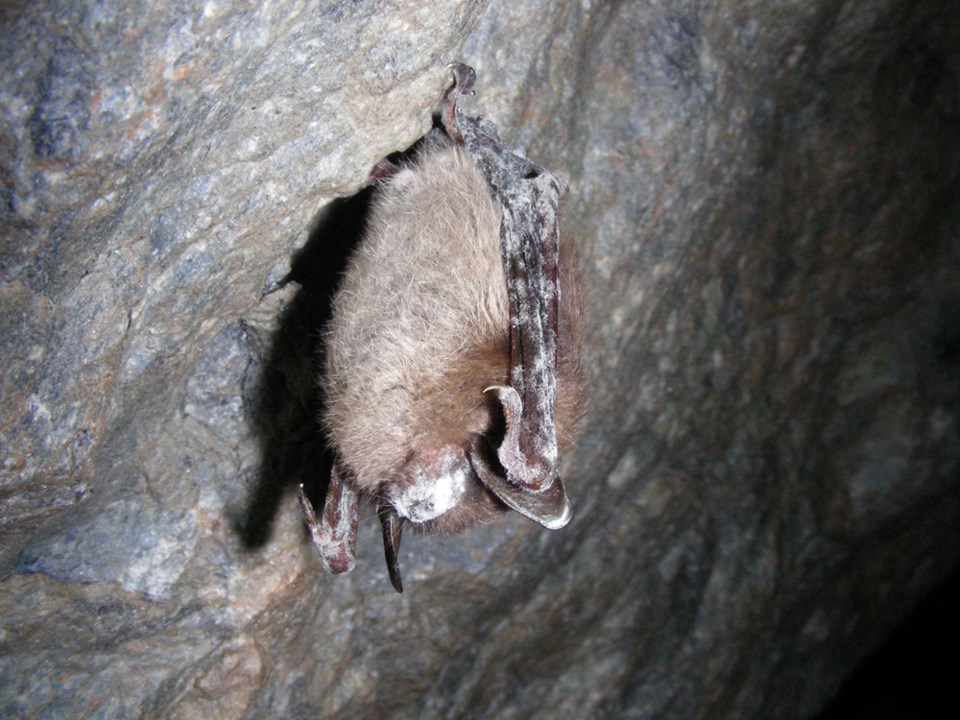Before you hit the road on vacation, be sure you’re not bringing any winged stowaways on your adventures.
Little brown bats and other bat species have been known to hide in umbrellas, trailers, campers and trucks and inadvertently join British Columbians on unwanted road trips.
This is not only a problem for the stowaways, who suddenly find themselves hundreds or thousands of kilometres away from home, it can be major problem for local bat populations if these road-travellers have white-nose syndrome.
While the disease is not dangerous to people or pets, it’s killed millions of bats in eastern North America and recently arrived in Washington State. Wildlife experts are concerned that the disease could make its way here if infected bats make their way into British Columbia.
The B.C. Ministry of Environment wants you to check your belongings for bats, under closed umbrellas, in awnings and gear racks, and anywhere else a small bat could hide. Trucks and railway workers are also asked to check for these unwanted passengers.
Make sure you never touch a bat with your bare hands. You can pick one up with a thick towel, oven mitt or leather glove, or gently nudge it into a container and release it. Less than 0.5 per cent of bats have rabies, but be careful, just in case. If you’re bitten or scratched, wash the area and seek medical attention.
If you find a bat in your vehicle, call the B.C. Wildlife Health Program (250-751-3219) or the B.C. Community Bat Program (1-855-922-2287).



